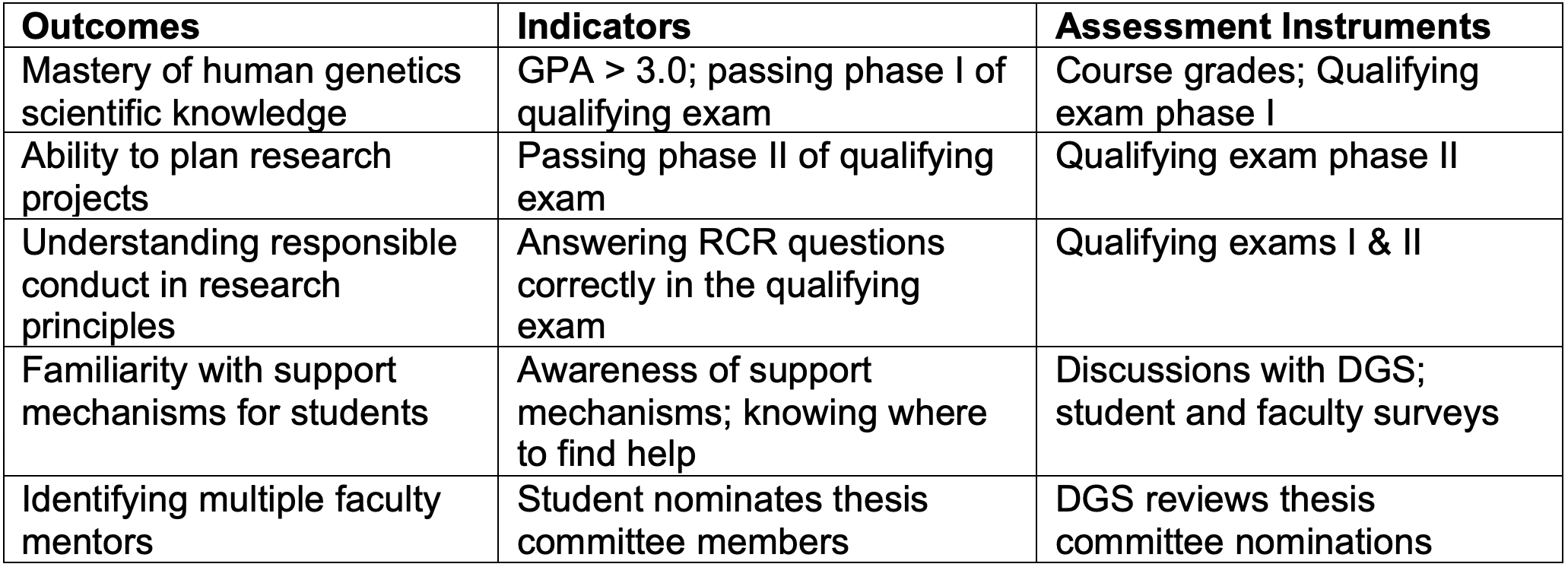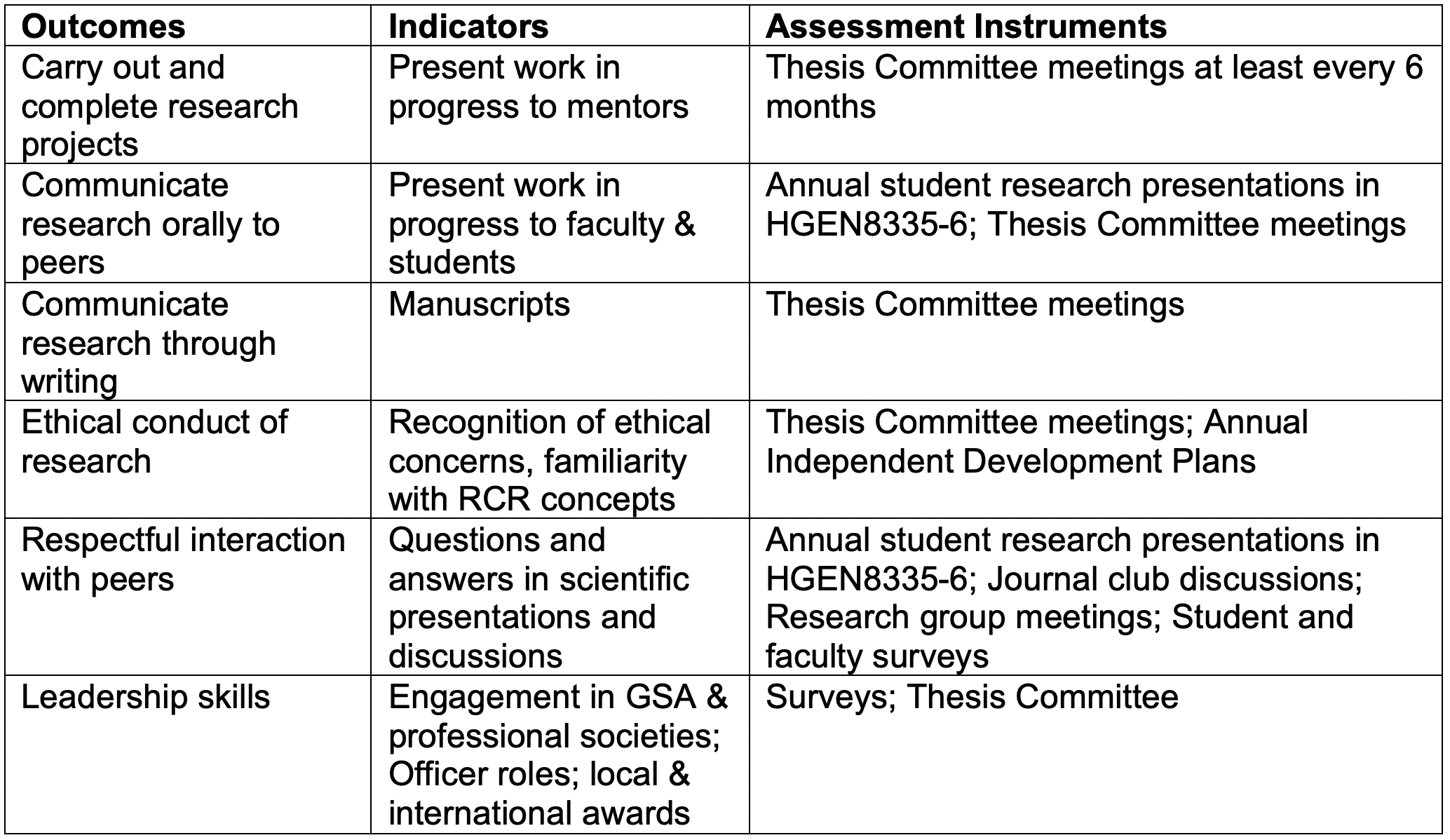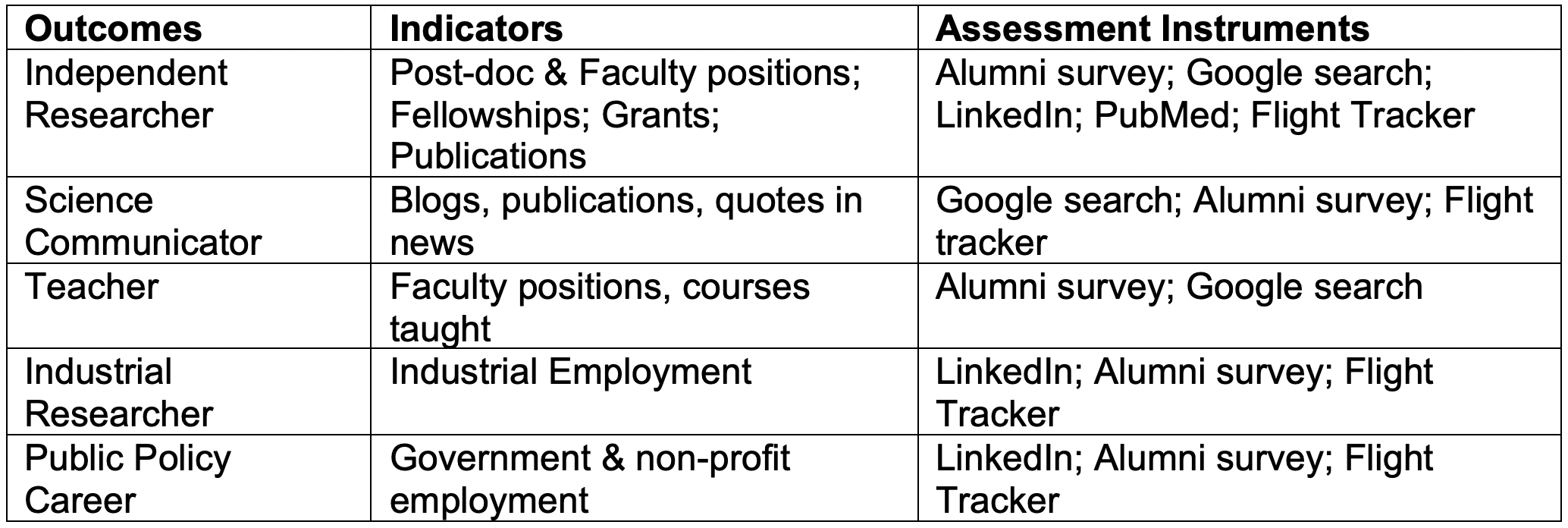Education Goals
Educational Goals of the Vanderbilt Human Genetics PhD Program
PhD completion rates have been excellent for this training program, with 100% completion in the recent graduates (those supported in the last 10 years, 16 PhD out of 16 students ending training). Time to degree in the recent graduates has been good with an average of 5.5 years. 17% of the students in the past 10 years have been from URM backgrounds.
In the short term, we educate students to improve their knowledge. More complex medium-term goals involve improving the students’ professional behavior. The long-term goal of a PhD program is to improve each student’s career options, throughout their professional career.
Short term goals are primarily to develop a solid basis of knowledge and skills so that the trainee can move into research activity. These short-term goals are primarily addressed in the initial didactic teaching phase of the training program, before the students take their Qualifying Exams, but they are certainly expected to deepen and continuously develop throughout the students’ education.
Short-Term Goals (Changes in Knowledge)

Medium-term educational goals are more complex than the short-term goals. These are mainly goals involving changes in behavior of the student, to develop professional behavior. Assessment of these medium-term goals is less quantitative than the assessment of the sort-term goals and relies on the regular written reviews of the students by their faculty mentors, including thesis committee members.
Medium-Term Goals (Changes in Behavior)

The long-term goals of this training program are to provide the appropriate training for the student to move into relevant careers after leaving our PhD program (Table A3).
Long Term Goals (Changes in Status)

